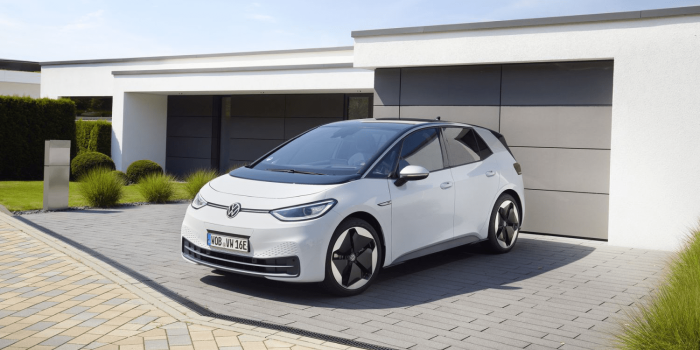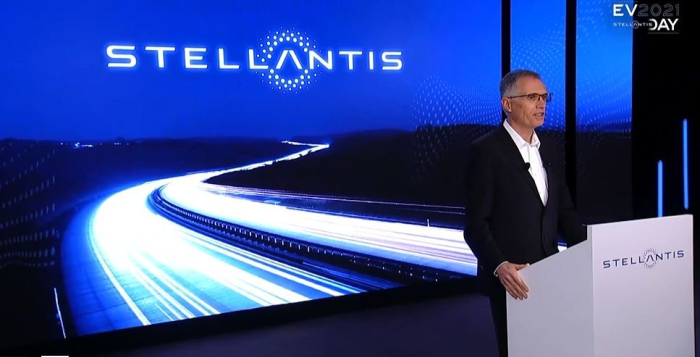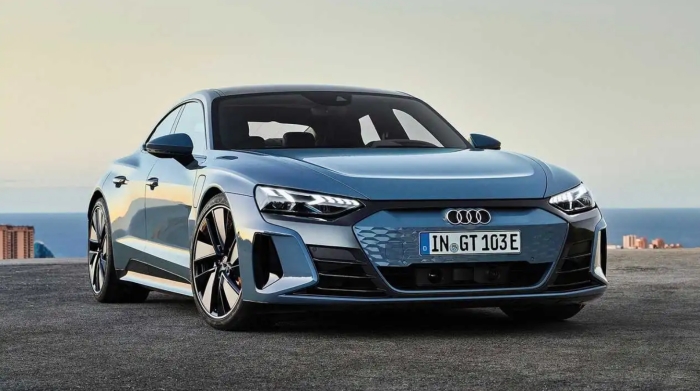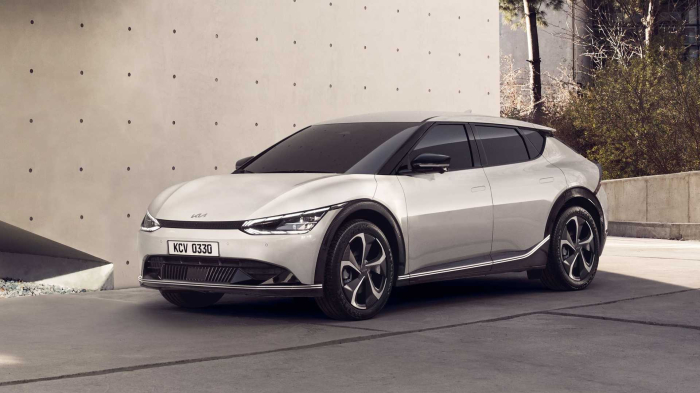Electric vehicles
Global EV race kicks off with key players investing $168 bn
South KoreaŌĆÖs three major EV battery makers are likely to further benefit from the capital-intensive EV competition
By Jul 11, 2021 (Gmt+09:00)
2
Min read
Most Read
Samsung shifts to emergency mode with 6-day work week for executives


CJ CheilJedang to sell feed, livestock unit for $1.4 bn


Samsung Electronics' key M&A man returns; big deals in the offing


Affinity to buy SK Rent-a-Car at $572 mn, more deals expected


Keppel REIT to sell Seoul-based prime office T Tower



The global auto industry is rapidly making a full-fledged shift towards electric vehicles (EVs), with the worldŌĆÖs five major market players, including Hyundai Motor Group, pledging a total EV investment of $168 billion.
According to the industry, the worldŌĆÖs fourth-largest motor group Stellantis N.V. said during its 2021 EV Day on July 8 that it will invest 30 billion euros ($35.6 billion) by 2025 in the segment. The company said that 70% of its sales in Europe and 40% of the US sales will come from EV models by 2030.
Stellantis added that all 14 motor brands under its umbrella, including Fiat, Chrysler, Jeep, Peugeot and Maserati will have their own EV lineup.

Stellantis will also build a total of five battery plants in Europe and the US, together with the worldŌĆÖs major battery manufacturers. Reuters reported that Samsung SDI Co. has been in talks with Stellantis to build the automakerŌĆÖs battery plant in the US.
ŌĆ£While we are reviewing various options from setting up a joint venture to building the factory on our own, nothing has yet been confirmed,ŌĆØ said a Samsung SDI official. At the same time, however, other industry sources in Korea reported that the deal between the two firms is already in the final stages.
Another European auto group, Volkswagen AG, will be making the worldŌĆÖs largest sum of investment in the EV segment, totaling 33 billion euros ($39.1 billion) by 2024. The Volkswagen Group is the maker of Audi e-tron, Volkswagen ID.3 and ID.4.

South KoreaŌĆÖs leading auto conglomerate Hyundai Motor Group will also invest a total of 33.5 trillion won ($29.2 billion) in future mobility, including the EV segment. By company, Hyundai Motor Co. will invest 10.8 trillion won ($9.4 billion) in the EV segment by 2025 and Kia Corp. will invest more than 10 trillion won ($8.7 billion) in EVs and other future-oriented businesses. ┬Ā

The traditional auto giants in America have also shared plans to invest heavily in EVs. In May, Ford Motor Co. announced that it will invest $30 billion through 2025 on electric vehicles, whereas FordŌĆÖs rival General Motors Co. (GM) in June also shared its $35 billion investment plan by 2025.
Ford will build EV battery plants in the US in partnership with SK Innovation Co., whereas GM and LG Energy Solution Ltd. are making their second EV battery plant in the US state of Tennessee.
Global auto industry analysts highlight that the worldŌĆÖs largest motor groups are funneling heavy sums of funds into the still-nascent EV segment due to both the absence of a dominant market leader and the positive EV market outlook.┬Ā
According to the International Energy Agency (IEA), there will be about 80 million EVs operating in the world by 2030, a figure 11.7 times higher than last yearŌĆÖs 6.8 million. Including plug-in hybrid electric vehicles (PHEVs), the growth rate is even higher, growing 12.1 times in the same period from 10.2 million vehicles to 124 million.
Meanwhile, a number of the worldŌĆÖs major countries are preparing to ban the sale of combustion engine vehicles. The Netherlands and Norway will ban such sales from 2025, Germany and the UK from 2030, Canada, China, Korea and the US from 2035, and France from 2040.
Write to Hyung-kyu Kim at khk@hankyung.com
Daniel Cho edited this article.
More to Read
-
 Electric vehiclesHyundai launches first Genesis EV sedan G80 in Korea
Electric vehiclesHyundai launches first Genesis EV sedan G80 in KoreaJul 07, 2021 (Gmt+09:00)
1 Min read -
 Electric vehiclesHyundai innovates EV manufacturing with smart factory system
Electric vehiclesHyundai innovates EV manufacturing with smart factory systemJul 02, 2021 (Gmt+09:00)
1 Min read -
 Electric vehiclesHyundai Motor, Grab deepen partnership for EV adoption in Southeast Asia
Electric vehiclesHyundai Motor, Grab deepen partnership for EV adoption in Southeast AsiaJun 23, 2021 (Gmt+09:00)
2 Min read -
 Electric vehiclesSeoul to host EV-only Formula E World Championship in 2022
Electric vehiclesSeoul to host EV-only Formula E World Championship in 2022Jun 18, 2021 (Gmt+09:00)
1 Min read
Comment 0
LOG IN


